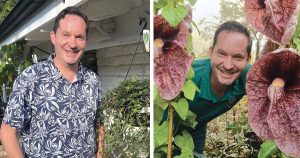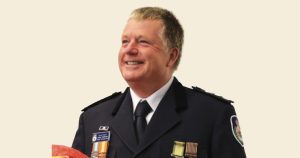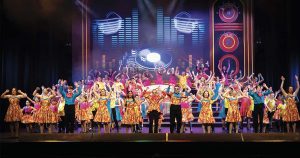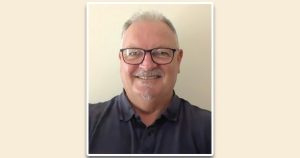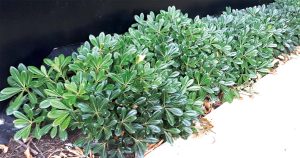By Tony Warner, Glenorie Resident
The hospital can be a scary place for a child. Even with the best medical attention, it is disempowering for kids and their parents. That’s why The Humour Foundation exists. Laughter
The Humour Foundation is a national Not-for-Profit organisation ‘bringing laughter where it is unexpected but most needed’.
Our Clown Doctors program visits sick kids and their families at the Children’s Hospital at Westmead and 23 other hospitals across the country. Our team of 70 trained performers go through auditions and a 12-month internship or ‘clownternship’ to prove they’ve got the skills to uplift and spread joy in various wards and clinics like day surgery, neonatal and mental health, burns, oncology and fractures.
We’re there, walking beside families, celebrating the good and being a shoulder during the difficult times. It’s about reading the room and knowing when to be loud and clumsy, to distract a child during a procedure but also when to be gentle and sing a lullaby for a precious premature baby to give their parents a moment to surface and breath.
We’re part of the fabric of these hospitals. We always say we hope children never have cause to meet the Clown Doctors, but if they do, we want to be there for them, every child, every day, every time”.
At the other end of the spectrum, our Elder Clowns program sees our team of trained performers visit people living in aged care facilities, including people living with dementia and those who are socially isolated.
Dementia Australia estimates that 40% of aged care residents don’t receive visitors. We are there for them to build deep, meaningful relationships, learn about their experiences, and honour their lives through music, stories, and play.
It’s powerful when someone that doesn’t like to leave their room comes out to see us, or a person with dementia that seldom speaks joins us in singing their favourite song. We willingly share our techniques with staff as we hope to strengthen relationships between aged care residents and professional care staff.
COVID has challenged the way we approach things. I can’t help but wonder if COVID hasn’t given us a taste of the isolation and frustration that people living with dementia experience daily, enough to know that we don’t like it at all. Because of COVID restrictions, we’ve connected with people using Zoom.
Zoom helped us keep 70 performers engaged in paid work when COVID decimated the arts sector. Our Clown Doctors
Table of Contents
Toggle




